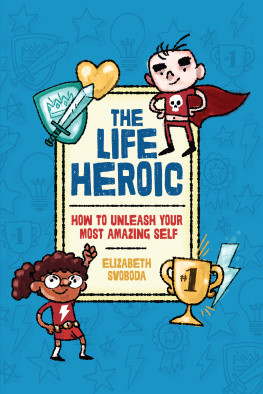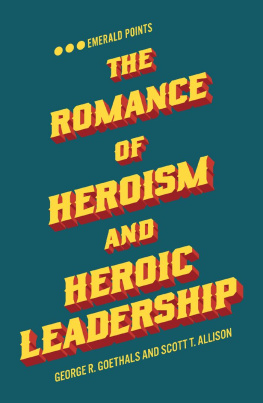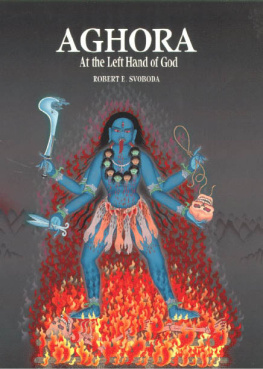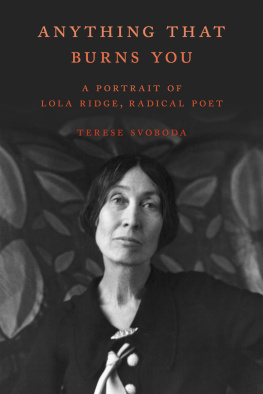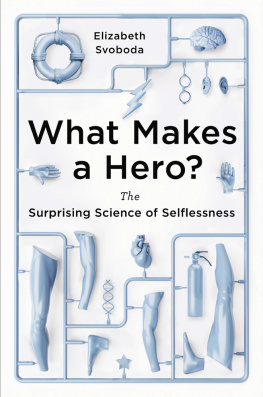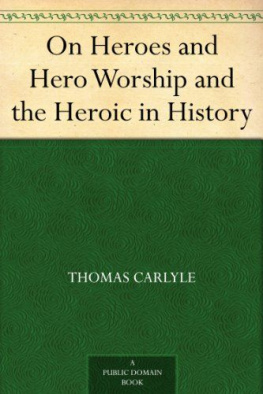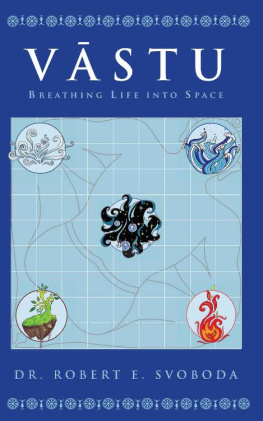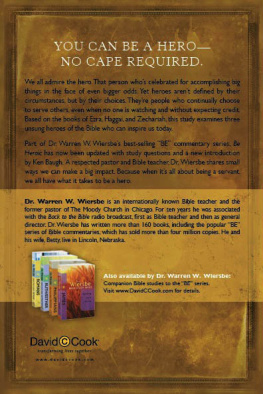CURRENT
Published by the Penguin Group
Penguin Group (USA) Inc., 375 Hudson Street
New York, New York 10014, USA

USA | Canada | UK | Ireland | Australia | New Zealand | India | South Africa | China
Penguin Books Ltd, Registered Offices: 80 Strand, London WC2R 0RL, England
For more information about the Penguin Group visit penguin.com
Copyright Elizabeth Svoboda, 2013
All rights reserved. No part of this book may be reproduced, scanned, or distributed in any printed or electronic form without permission. Please do not participate in or encourage piracy of copyrighted materials in violation of the authors rights. Purchase only authorized editions.
Library of Congress Cataloguing in Publication Data
Svoboda, Elizabeth.
What makes a hero? : the surprising science of selflessness / Elizabeth Svoboda.
pages cm
Includes bibliographical references.
ISBN: 978-1-101-62264-3
1. Altruism. 2. Courage. 3. HeroesPsychology. I. Title.
BF637.H4S86 2013
155.232dc23 2013017671
To my parents, my first heroes
Contents
Introduction
CAN ANYONE BECOME A HERO?
, Texas, and Shirley Dygert was getting ready to skydive for the first time. Dygert didnt fit the typical daredevil mold; she was a grandmother and longtime employee of the U.S. Postal Service. But her son lived close to a popular drop zone, and a couple years beforeon his thirtieth birthdayhed taken the plunge from 13,500 feet. Hed been raving about the experience ever since. So when Dygerts other son invited her to come along on his first dive, she readily agreed. When Dygerts party was summoned, she started to get nervous. I thought, OK, dont think about what youre about to do.
But when she met her instructor, Dave Hartsockthe man shed be strapped to as they executed a tandem diveshe felt at ease. He seemed really interested in getting to know her, interrupting his stream of friendly chitchat only to provide reassuring answers to her questions. When she asked him how often hed done this before, he reassured her, Hundreds of jumps. Shed already done the most dangerous thing she would do all day, he told her: driving her car to the drop zone. By the time Dygert finally stepped out of the small plane into thin air, her fears had calmed a little.
For a few seconds that stretched long enough to seem like minutes, the dive went exactly as scripted. During the first phase, a free fall, all Dygert could do was gape at the spectacle of the Texas plains rising up to meet her, poised, it seemed, to envelop her in a comforting embrace when she touched down.
But problems started as soon as Hartsock opened the parachute to stop the free fall. The chute was supposed to billow out on all sides, but it didnt open all the way; instead, it stayed crumpled, like a discarded napkin. Around the same time, Hartsock and Dygert began to spin in midair. We went around in a circle and we just kept going, Dygert remembers. Dave said, Ill be honest with you. Were in trouble.
Ordinarily, the failure of the primary parachute wouldnt have presented a serious problem. Most skydiving teams are equipped with a backup chute, which the instructor can deploy by pulling a handle. But when Hartsock fired the backup chute, it got all tangled up with the primary parachute. So he started manipulating the snarled parachute lines to try to slow their fall. I just grabbed a bunch of lines, he says, and started pulling.
After a few seconds, though, it became clear that Hartsocks emergency backup measures werent working well enough. He and Dygert were still falling toward the groundand falling fast. Certain that she was going to die, Dygert frantically tried to locate her family on the ground so she could tell whether or not they were watching. She didnt want them to have to see this.
When Dygert and Hartsock were still a few hundred feet from the ground, Hartsock made a fatefuland very consciousdecision: He used control toggles to rotate himself in the air so that he was underneath Dygert. That way, his body would cushion her fall and shed have a chance to survive even if his own odds of making it were low. But he didnt explain his reasoning to her. Instead, he gave her a swift, direct instruction. I told her to pull up her legs.
Hartsocks split-second midair decision dramatically altered the course of both his life and his students. After the two of them hit the ground with a sickening crunch, Dygert slowly tried to reorient herself. She couldnt believe she was still alive. I looked over my shoulder. Dave was on the ground, and I was lying on top of him. She hoped Hartsock had avoided the worst, but as more people began to run to the scene, it dawned on her that he was in for a rough time. A kid from our party said, Get off him. Hes not breathing.
Though Dygert kept telling everyone she felt fine, doctors determined shed broken multiple vertebrae in her neck and sustained other internal injuries. But that was nothing, she later learned, compared with what had happened to Hartsock. When he regained consciousness, he faced a rude awakening: His spinal cord had been injured and he was paralyzed from the neck down. In all likelihood, hed never walk again, much less jump 13,500 feet from a plane.
It took Dygert some time to realize the magnitude of the sacrifice her teacher had made. At first, she figured it was mere chance that Hartsock, and not she, had been the one to sustain permanent paralysis. I sure would have split it with him, she remembers thinking wistfully. But it soon became clear that her own narrow escape had been no accident. A man whod just met her had sacrificed his own health and well-being so she might be able to keep hers. I was absolutely amazed, Dygert says, blinking back tears. How can somebody have that much love for another person?
The question that still preoccupies Dygert is the same one that echoed in so many peoples minds after the story of Hartsocks feat went public. Why? Why did Dave Hartsockgoing against every self-preserving impulse that must have screamed through himpropel in 2007 to save a man whod stumbled onto the tracks. How can someone have that much love for another personenough to put that persons well-being and survival ahead of their own?
Traditionally, we have turned to the realm of the sublime to address questions like theseto deep moral contemplation, to the practice of spiritual discipline. But researchers from all over the world are turning the exacting lens of science on altruism and heroism for the first time. Not only are they exploring how biology, upbringing, and outside influences intersect to produce selfless and heroic behavior, theyre investigating ways we can encourage this behavior in corporations, in organizations, in classrooms, and in individuals. In short, theyre focusing on what makes a Dave Hartsock and on making sure future generations include plenty of them, too. Can youcan any ordinary personlearn to build on your natural biological endowments to turn yourself into a model of selflessness and service to others? Plenty of scientists and experts are now staking their careers on that possibility.
But new attempts to suss out the origins of selflessness and encourage it raise additional questions. What makes a hero, anyway? The psychologist and Stanford professor emeritus Phil Zimbardo is obsessed with finding out. of the dark side. I was so depressed, being immersed in the Stanford prison study. I realized, Ive done fifteen chapters of the worst in human nature. So the last chapter is How do we resist these negative influences, and how do we celebrate heroism?


